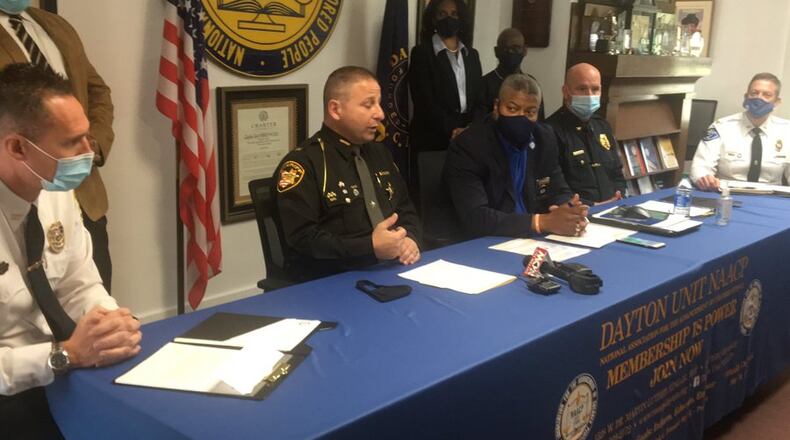“We understand that through this relationship-building process, and to have success with this place, that it’s critically important to be open, honest, and sometimes direct with one another about the process and we have done just that,” Foward said, adding that several local agencies have made changes to their policies in accordance with the calls for reform.
The local unit created its plan over the summer following George Floyd’s death while in police custody and the numerous protests across the Miami Valley and nation that followed. A letter was sent to local policing agencies by the NAACP requesting that they adopt changes to their policies. Those changes include:
- Modifying and/or implementing a citizen’s review board with subpoena powers to investigate complaints made by the public regarding police officers.
- Create a more transparent process around accountability of officers who violate citizens' constitutional rights, police ethics and departmental policies and procedures by making the officers' names and their disciplinary records available to the public.
- Create a policy where officers who discharge their weapon and/or use excessive force on an unarmed person be suspended without pay pending an investigation. The officer’s name, policing history and additional information outlined in public records laws should be made public upon the disposition of the investigation and within a reasonable amount of time.
- Ensure transparency, accountability and safety of communities by requiring front-facing cameras to be actively recording all on-duty police officers. The department should also ensure at least two cruiser cameras are utilized in every cruiser, with one facing toward the street and the other toward the person in custody.
- Include an emphasis on mental health assessments, de-escalating conflicts and improving community relations in the core training of officers.
- Ban the use of knee holds and chokeholds.
- Actively vet applicants and recruit officers who reflect and proportionally represent the community they serve. Use psychological evaluations in the hiring of officers. The number of applicants for available positions should be hired with regards to diversity and inclusion.
- Provide video of all fatal shootings and arrests, as well as incidents with alleged police brutality, in a reasonable amount of time.
Foward was joined by Montgomery County Sheriff Rob Streck, Vandalia Police Chief Kurt Althouse, Oakwood Police Chief Alan Hill and Kettering Police Chief Christopher Protsman in announcing the local changes. Each said their department is working with the NAACP to improve relationships and policing in the area.
“In my opinion, police transparency, public trust and officer accountability at all levels are the three most critical components as we move forward,” Hill said.
Hill talked about his department’s plan to purchase body cameras and cruiser cameras for its officers. He said the plan is to get them up and operational by early next year.
Streck discussed a new program his office and other agencies are doing to address those with mental health problems. He said his office has two trained professionals that ride with deputies and work at scenes with people who have mental health issues. He said the work is resulting in less arrests — saving taxpayers money and also keeping people he said don’t belong in jail out of jail.
Prostman said his department has made it clear on its policy that officers are not to use chokeholds unless in a deadly force situation and that officer have a duty to intervene if another officer is breaking the law or policy. Meanwhile, Althouse said his department is looking to diversify the way it recruits new officers.
Foward said more changes are coming and he planned to continue to update the community every quarter.
About the Author

